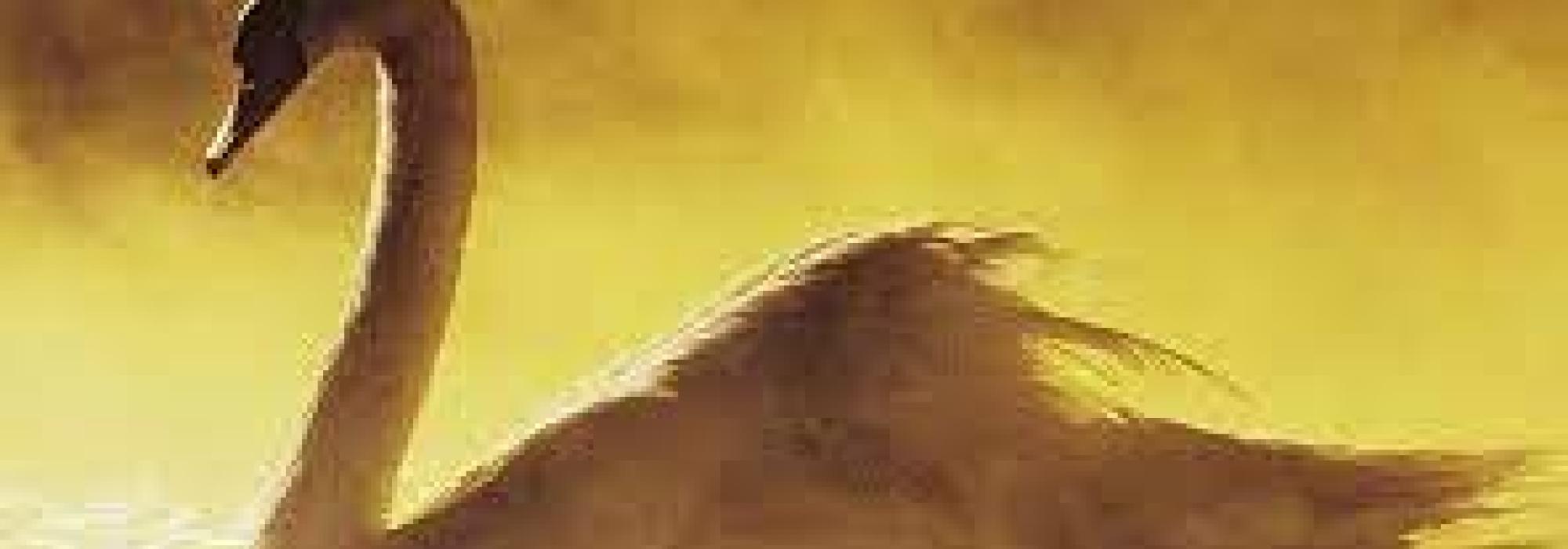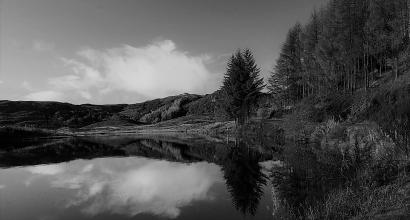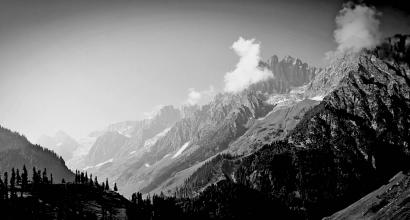Padmāvatī-lambaka
देहार्धधृतकान्तोऽपि तपस्वी निर्गुणोऽपि यः।
जगत्स्तुत्यो नमस्तस्मै चित्ररूपाय शंभवे॥
चलत्कर्णाग्रविक्षिप्तगण्डोड्डीनालिमण्डलम्।
धुन्वानं विघ्नसङ्घातमिव विघ्नान्तकं नुमः॥
I bow down to the divine, who has his beloved occupying half his body, but is yet a tapasvī and beyond attributes. I bow down to this amazing form of Śiva, who is adored by the world.
My salutations to Gaṇeśa, the remover of obstacles. By fanning his large ears, he shoos away groups of bees which crowd his face, being attracted to the ichor flowing from his head.
Naravāhanadatta spent the rainy season in the Asita-giri. The ṛṣis and their wives who lived there asked – “Tell us, who ridiculed you and in what manner, when Mānasavega abducted Madanacumbikā”. He replied –
I cannot describe in words the agony of losing my beloved. There was no village, street, garden or house, that my ministers and I did not search. I almost went mad. One day, as I sat below a tree, Gomukha consoled me and said – “O Lord! Don’t worry. You will get back your wife soon. You will enjoy all the riches of the vidyādharas – so the devas have decreed. Their words won’t go false. Rāma, Nala, your ancestors and several others have experienced intense pain of separation. Did they not unite soon after? Muktāphalahetu, the emperor of the vidyādharas got separated from Padmāvatī and later got reunited, didn’t he? I will tell you his story –
The Story of Brahmadatta
There lived a king called Brahmadatta in Vārāṇasi. He had a queen called Somaprabhā and a minister called Śivabhūti. One day, as he was sleeping in the Candraprāsāda, he spotted a couple pf golden coloured swans, which were flying with rājahaṃsas. He wished to see them again and expressed his desire to his minister. The minister got a large lake constructed and grew lotus and lilies. With time, Sārasa, cakravāka and swans came to the lake. Finally, the golden swans also arrived there. The king sat looking at them for a long time.
One day, he spotted someone performing arcana with flowers that would not fade away. He was curious to know who the person was and asked the security guards. They told him – “Lord! The golden swans take bath in this lake every evening and perform pūjā. We don’t know how to explain this wonder”. The king wished to understand the mystery behind this and started performing a tapas to Śiva. On the twelfth day, the swans appeared in his dream and said – “We will explain everything tomorrow morning; you may come with your wives and ministers! Accordingly, he waited in the Aṃbulīlāmandira and the swans came there to tell him their story.
The Story of the Golden Swans
Once, Parameśvara, after sporting with Pārvatī at the mount Mandara, left her there in order to take part in a cause for the devas and vanished. As the goddess sat under a tree lost in thoughts of Śiva, her companion Candralekhā who stood fanning her and a gaṇa named Maṇi-puṣpeśvara, exchanged looks of love and were stuck staring at each other wide-eyed. Seeing this, two other gaṇas - Piṅgeśvara and Guheśvara could not control their laughter. Pārvatī was annoyed at this. She looked around and immediately understood what had happened. Then she cursed them in fury thus: “When your lord was away, you lost no time in assuming lenience and resorted to mischief! And watching you, these other two laughed merrily! I curse you to be born as mortals and suffer pangs of uncontrollable lust. May these two who were laughing just now, also take birth on earth and suffer untold miseries!”. Then, a gaṇa named Dhurjata intervened and asked goddess Pārvatī,“This is not appropriate, O goddess! Would a small transgression merit such a harsh punishment?”. The goddess’ anger fell upon him as well. She thundered: “Dhūrjaṭa! May you too be born a mortal!”. Then, Jayā, the mother of Candralekhā fell upon the feet of Pārvatī and begged “Mother, I beseech you! Be pleased! Pray tell us how this curse may be lifted. Please forgive the sin committed by my daughter and the other servants of yours!”. The kind goddess answered: “When they all realise their past and travel together to the place of meditation of lord Brahma and others, and Siddhīśvara, the curse will end and they will come back here!”. Let me now narrate the story of their lives as mortals:-
In a colony named Yajñasthala lived a brāhmaṇa named Yajñasoma. He had two sons - Harisoma and Devasoma. When Yajñasoma and his wife died, their relatives usurped their sons’ inheritance. Harisoma and Devasoma were left with no means for sustenance and could not even secure alms. Seeing no other way, they went to the house of their maternal grandfather - only to find out that he was long dead. Then they went to the house of their maternal uncles Yajñadeva and Kratudeva. The latter too however were living in penury. Seeing that they anyway did not have anyone to graze the cattle, the uncles took the brothers in for that work. One day, when Harisoma and Devasoma were grazing the cows, to their misfortune, one was stolen by someone and the other was dragged away by a tiger. Then one day, upon noticing that the goat meant for sacrifice was missing, the brothers went in search of it. It too was apparently snatched away by a tiger, and they soon came upon the remains of the partially eaten goat. They thought: “If we tell our uncles about this, they will undoubtedly be furious at us. Let us eat a little of whatever is left of this goat, pack the rest and go to another town and live off alms''. Just as they began to cook the meat, their uncles came in search of them. Seeing them from afar, Harisoma and Devasoma fled in fear. Yajñadeva and Kratudeva cursed the brāhmaṇa-brothers to turn into brahma-rākṣasas. Next, the cursed brothers who had been transformed into monsters, went to devour an ascetic, who in turn cursed them to turn into piśācas. Now piśācas, the brothers tried to snatch a brahmaṇa’s cow, only to incur its master’s wrath and turn into caṇḍālas. Then the famished duo walked into a colony of thieves, hoping to scrounge something there. There, they were apprehended by the guards who mercilessly cut off their ears and nose and presented them to their chief. Listening to their tale of woe, the chief of thieves gave them food, clothing and refuge. Harisoma and Devasoma soon took to robbery, working alongside their new found chief, and slowly they rose to the position of commanders within the thieves’ army. One day, they took to plunder a town of pilgrimage dedicated to lord Śiva. The townsfolk wailed so pitifully under their onslaught that their cries reached the ears of lord Śiva himself, who flew into a rage and cursed Harisoma and Devasoma to turn blind. Emboldened by this, the townspeople took up clubs and sticks and beat the thieving duo black and blue. The brothers then transformed into dogs without tails and from the latent instincts of their earlier birth, began to dance before lord Śiva!
The people who noticed it went home amused. The next morning they saw that they were immersed in dhyāna; they didn’t eat anything; after many days, the śivagaṇas went to Īśvara and requested him, ‘These dogs are actually Piṅgeśvara and Guheśvara who were cursed by Devī; they have already suffered a lot; please help them.’ Then they were born as crows instead of being dogs; then as vultures, peacocks, and finally swans. Even then they worshipped Īśvara. Their bodies were transformed into gold and finally they realised their original forms. We are Piṅgeśvara and Guheśvara. Maṇipuṣpeśvara who sought Jayā’s daughter was actually you, Brahmadatta; Jayā’s daughter is now your wife Somaprabhā; Dhūrjaṭa is your minister Śivabhūti; thus we provided you the power to remember all these things during the night; with this we were all able to reunite; now let’s go to Siddhīśvara. That's where the deities performed tapas and killed Vidyuddhvajāsura with the help of Muktāphalaketu. Muktāphalaketu also was liberated from his human body which he was in due to a curse and finally he reunited with Padmāvatī; we wanted for all of us to be liberated together from the curse. Then Brahmadatta was curious to hear the story of Muktāphalaketu so we narrate the story–
The Story of Muktāphalaketu
2. A rākṣasa named Vidyutprabha performed rigorous tapas, propitiated Brahmā, and got a son named Vidyuddhvaja. When he was a child, he noticed that his city was guarded from four sides by a strong contingent of soldiers and he asked his friend, ‘Why are so many soldiers guarding the city?’ His friend replied, ‘Devendra is our enemy, to ward off his attack, soldiers are always stationed.’ Vidyuddhvaja was embarrassed, ‘Fie upon us! What is the use of the kingdom which is guarded by others? I’ll perform tapas and become strong enough to guard the kingdom all by myself.’ dismissing all wise counsel he went to the forest and performed tapas to propitiate Brahmā. Brahmā appeared before him, gave him the brahmāstra and said, ‘this will be invincible except from pāśupatāstra. So when in need, use it tactfully at an appropriate time.’ With brahmāstra in possession, he attacked Indra. Indra faced him with the help of Candraketu, the king of vidyādharas and Padmaśekhara, the king of gandharvas. He used his vajra to kill Vidyutprabha, this enraged Vidyuddhvaja, who used brahmāstra in retaliation. Indra worshipped Īśvara, got pāśupatāstra and used it on Vidyuddhvaja; it destroyed the rākṣasa army and rendered Vidyuddhvaja unconscious. Once he was revived, he went to Kailāsa and performed tapas, when Īśvara appeared he asked him to give a boon facilitating the killing of Indra. Īśvara said, ‘There is no difference between getting defeated and getting killed; you’ll indeed defeat Indra and enjoy his status!’ With the power of that boon, Vidyuddhvaja defeated Indra and snatched Amarāvatī from him. The defeated Indra went to Brahmā, then Brahmā, Viṣṇu, Indra, Bṛhaspati along with other deities went to Siddhīśvara to please Īśvara by tapas. Īśvara, pleased, appeared and said, “Candraketu will have a son born of my aṃśa who would finally kill Vidyuddhvaja. He will marry Padmāvatī who will be born as the daughter of Padmaśekhara as the aṃśa of Pārvatī.
Śiva granted their wish by uttering these words: “A son will be born of my grace to Candraketu. The boy will grow up to be a fine young man who will one day slay Vidyud-dhvaja. He will also wed Padmāvatī, the daughter who will be born to Padma-śekhara by Gaurī’s blessings. He will then reign over the vidyādharas for a long time and eventually return to me!” Soon, Candraketu was blessed with a son whom he named Muktāphala-ketu. Lord Śiva blessed the boy with the knowledge of all sciences and secret lore, and gifted him a divine sword named Aparājita.
One day when Vidyud-dhvaja was sporting in the waters of divine Gaṅgā, he noticed that the river had a golden hue caused by the pollen dust of flowers, and it also possessed the aroma of elephant’s rut-release. He ordered his attendants to find out who was playing upstream. Vidyud-dhvaja soon learnt that it was none other than the elephant of Indra and the bull of lord Śiva. Overcome with rage, he commanded his armies to subdue them. The troops however were no match for the two divine creatures. Laying his forces to waste in no time, the elephant and the bull slowly sauntered back to their masters. This marked the start of Vidyud-dhvaja’s defeats.
3. Realising that the time was ripe, Indra launched an attack on heaven. Muktāphala-ketu too departed to assist Indra. On his way, he came upon a temple of goddess Gaurī and stopped to offer his prayers. He then saw two rākṣasīs carry away Padmāvatī against her wishes. The valorous Muktāphala-ketu confronted and killed them and thus rescued Padmāvatī. He listened to her story, and even as they stood there talking, he heard the tumultuous sounds of kettle drums and battle trumpets. He had no choice but to leave her there and rush to battle. In the deva-asura war that ensued, Muktāphala-ketu slayed Vidyud-dhvaja. Thus, Indra regained his lordship over heaven.
4-6. Muktāphala-ketu could not return to Padmāvatī right away since he was afflicted with a curse. As a result, he had to spend some time as a mortal human before being released from his curse. He then married Padmāvatī and ruled for many kalpas (aeons), the kingdom of asuras gifted by Indra and the vidyādhara empire which he inherited from his father Candraketu. At the end, he undertook austerities and attained union with the feet of lord Śiva.
After listening to this story narrated by the swans, king Brahmadatta, accompanied with his queen, ministers and the swans, went to Siddhīśvara. There, they cast off their curse-ridden mortal form and reached the realm of lord Śiva.
Naravāhanadatta said, ‘Listening to this story narrated by Gomukha, I was able to withstand a little, the pangs of separation from Madana-mañcukā’. Listening to his words, Gopālaka and the other sages in the hermitage of Kaśyapa became happy.
End of Padmāvatī-lambaka
Śrīrastu
The current article is a translation of Prof. A R Krishnasastri’s Kannada classic Kathāmṛta along with additional segments added from the original Kathā-sarit-sāgara (of Soma-deva). Bṛhat-kathā-mañjarī (of Kṣemendra) and Bṛhat-kathā-śloka-saṃgraha (of Budha-svāmin) have also been referred to. The translation has been rendered by Raghavendra G S, Arjun Bharadwaj, Srishan Thirumalai, and Hari Ravikumar.
The original Kannada version of Kathāmṛta is available for free online reading. So are the other works of Prof. Krishna Shastri










































